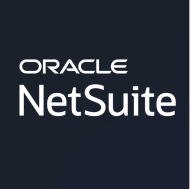

Tableau Enterprise and NetSuite Business Intelligence compete in the business intelligence domain. Tableau Enterprise seems to have the upper hand in terms of visual analytics, while NetSuite offers strong integration with business management tools.
Features: Tableau Enterprise offers powerful visual analytics, seamless integration with diverse data sources, and exceptional customization. NetSuite Business Intelligence provides embedded analytics, real-time reporting capabilities, and comprehensive ERP integration.
Ease of Deployment and Customer Service: Tableau Enterprise provides flexible and straightforward deployment across various IT environments with robust community support and documentation. NetSuite Business Intelligence offers a cloud-based deployment model integrated with its suite of applications, delivering a cohesive experience for businesses already using NetSuite solutions.
Pricing and ROI: Tableau Enterprise offers a flexible pricing model emphasizing visualization capabilities versus cost, making it often perceived as more affordable. NetSuite Business Intelligence, bundled with ERP solutions, is positioned at a higher price point but provides significant ROI through integration and comprehensive business intelligence tools.
| Product | Market Share (%) |
|---|---|
| Tableau Enterprise | 6.2% |
| NetSuite Business Intelligence | 0.8% |
| Other | 93.0% |


| Company Size | Count |
|---|---|
| Small Business | 117 |
| Midsize Enterprise | 67 |
| Large Enterprise | 184 |
NetSuite Business Intelligence provides the power of built-in, real-time dashboards, reporting and analysis across all the integrated processes within the software suite.
Tableau Enterprise offers powerful features for creating interactive visualizations, dashboards, and maps, including drag-and-drop functionality and easy integration with multiple data sources, promoting real-time collaboration and self-service analysis.
Tableau Enterprise stands out with its ability to create user-friendly, interactive visualizations, making it pivotal for business intelligence applications. Users benefit from its seamless connectivity and advanced analytical functions, facilitating data blending and storytelling. Despite a complex learning curve and high licensing costs, its features like geospatial analysis and efficient content distribution drive its indispensable value for data-driven insights. Enhancements in predictive analytics and support integration with machine learning tools further its capabilities across industries.
What are the most valuable features?Tableau Enterprise is widely used for business intelligence, supporting industries like healthcare, telecommunications, and finance. Organizations utilize it to analyze performance indicators, operational insights, and financial analytics, enhancing decision-making through interactive reports and real-time data integration.
We monitor all BI (Business Intelligence) Tools reviews to prevent fraudulent reviews and keep review quality high. We do not post reviews by company employees or direct competitors. We validate each review for authenticity via cross-reference with LinkedIn, and personal follow-up with the reviewer when necessary.